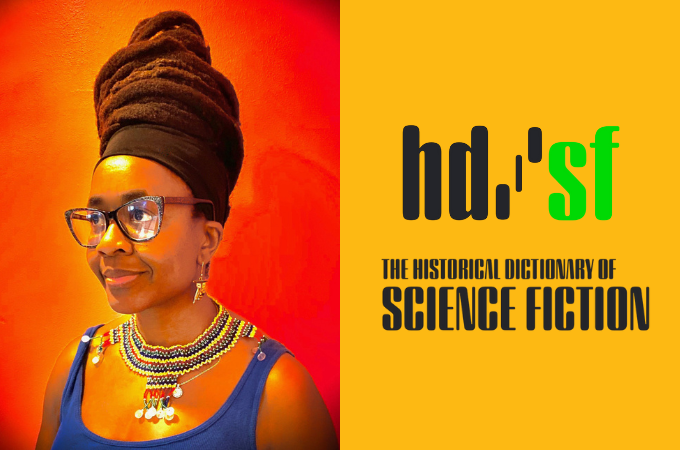
“Africanfuturism”—the term coined by Nigerian-American author Nnedi Okorafor to describe Africa-centered science fiction—has been added to the Historical Dictionary of Science Fiction (HD/SF) as a noun.
The HD/SF is the world’s most recognized platform on science fiction terms, containing the largest and most extensive vocabulary of English-language science fiction. It is edited and coded by Jesse Sheidlower, Adjunct Assistant Professor at Columbia University and former Editor at Large of the Oxford English Dictionary. The dictionary was previously run by the Oxford English Dictionary, but now functions independently.
In the dictionary, “Africanfuturism” is defined as:
Nnedi Okorafor’s term for: a subgenre of science fiction that heavily features elements of African history or culture; cf. Afrofuturism.
Okorafor came up with the term “Africanfuturism” to distinguish her writing from Afrofuturism. In a 2019 blog post titled “Africanfuturism Defined” the author explains that both terms are similar but distinguishes the latter as “specifically and more directly rooted in African culture, history, mythology and point-of-view as it then branches into the Black Diaspora, and it does not privilege or center the West.”
Since then, many more African authors have embraced—and now freely use—the term to describe their work. The genre has since gained ground in the African speculative fiction community. Some magazines are devoted to publishing works of Africanfuturism—such as Omenana, founded by the BBC journalist Mazi Nwonwu.
In 2020, to mark our tenth anniversary, we collaborated with writer Wole Talabi to publish a free collection of Africanfuturist stories. The collection includes works by such writers as Nnedi Okorafor, TL Huchu and Mazi Nwonwu. It was a finalist for the Locus Awards.
Kudos to Nnedi Okorafor for introducing an idea that an increasing number of writers see as helpful for thinking about their work.









COMMENTS -
Reader Interactions